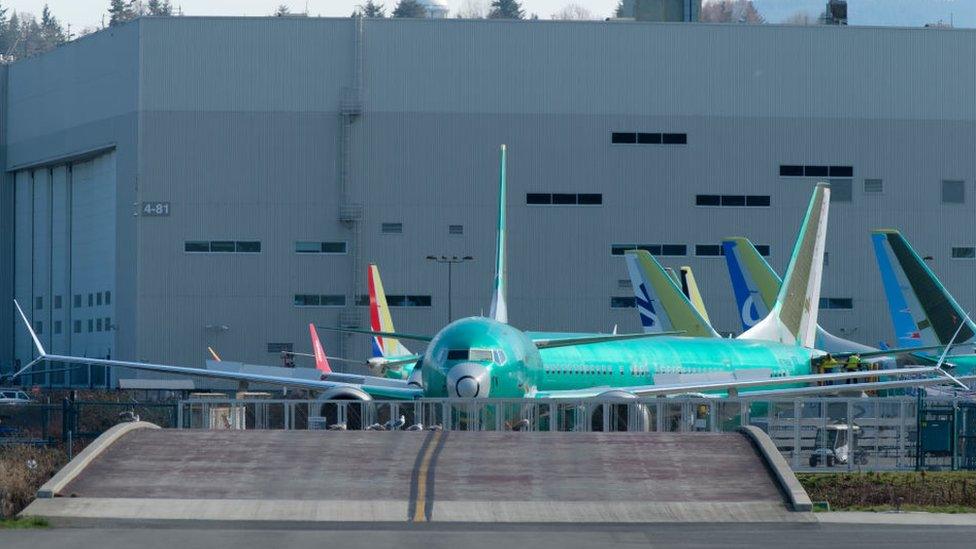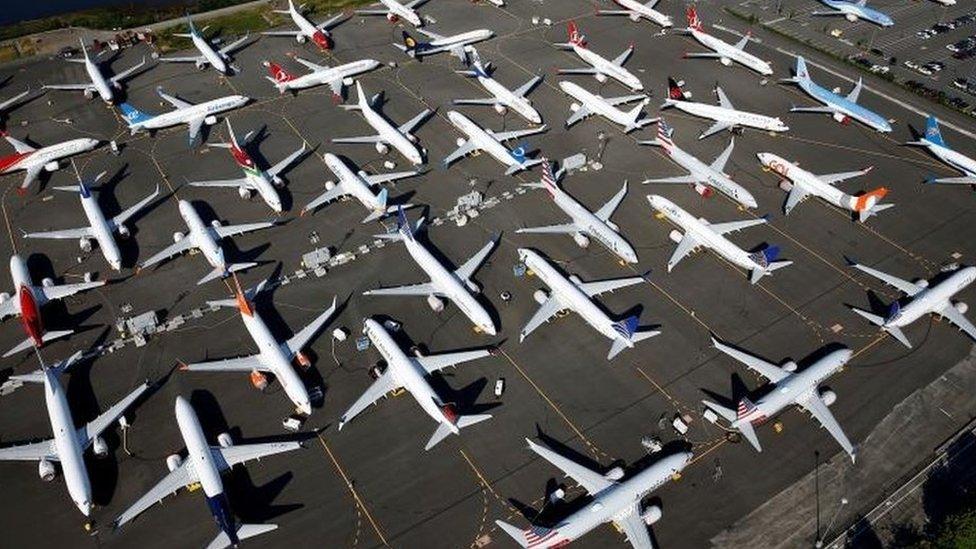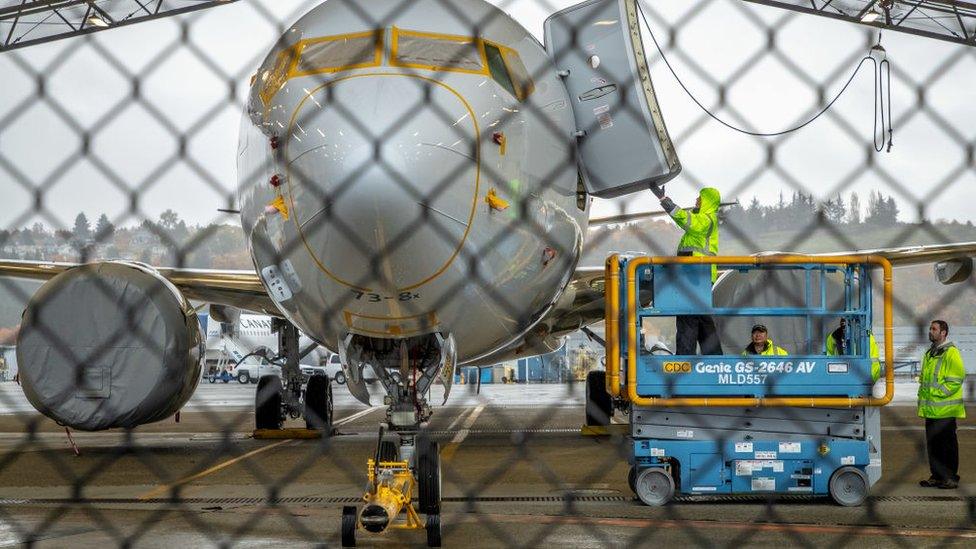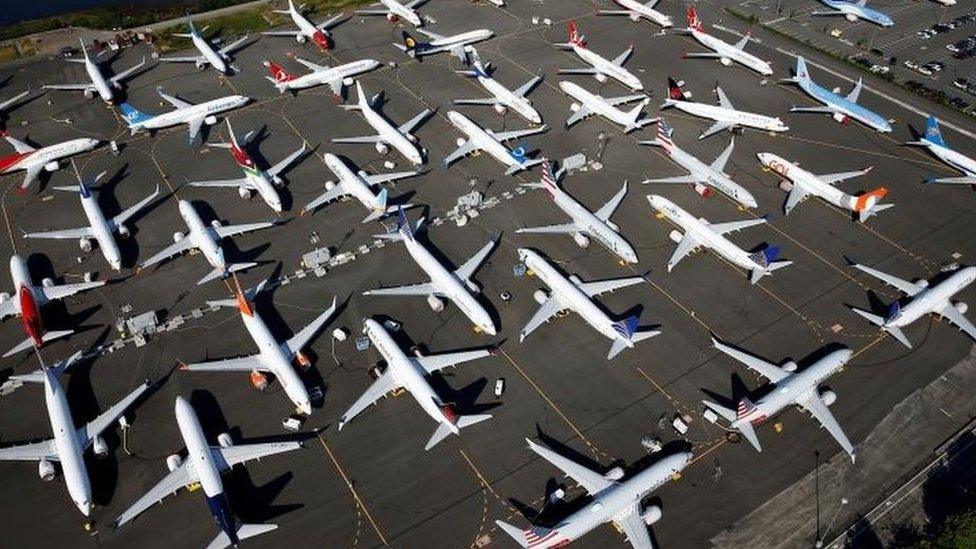737 Max: Debris found in new planes' fuel tanks
- Published

Boeing's crisis-hit 737 Max jetliner faces a new potential safety issue as debris has been found in the fuel tanks of several new planes which were in storage, awaiting delivery to airlines.
The head of Boeing's 737 programme has told employees that the discovery was "absolutely unacceptable".
A Boeing spokesman said the company did not see the issue further delaying the jet's return to service.
It comes as the 737 Max remains grounded after two fatal crashes.
The US plane maker said it discovered so-called "Foreign Object Debris" left inside the wing fuel tanks of several undelivered 737 Maxs.
A company spokesman told the BBC: "While conducting maintenance we discovered Foreign Object Debris (FOD) in undelivered 737 Max airplanes currently in storage. That finding led to a robust internal investigation and immediate corrective actions in our production system."
Foreign Object Debris is a technical term that covers any substance, debris or article that isn't part of a plane which would potentially cause damage.
The revelation is the latest in a string of problems affecting what was once Boeing's best-selling plane.
The aircraft has been grounded by regulators around the world since March 2019.
It was banned from flying after two separate crashes killed 346 people.

737 Max timeline
29 October 2018: A 737 Max 8 operated by Lion Air crashes after leaving Indonesia, killing all 189 people on board
31 January 2019: Boeing reports an order of 5,011 Max planes from 79 customers
10 March 2019: A 737 Max 8 operated by Ethiopian Airlines crashes, killing all 157 people on board
14 March 2019: Boeing grounds entire 737 Max aircraft fleet

The US regulator, the Federal Aviation Administration (FAA), told the BBC that it was monitoring the plane maker's response to the new issue: "The FAA is aware that Boeing is conducting a voluntary inspection of undelivered aircraft for Foreign Object Debris (FOD) as part of the company's ongoing efforts to ensure manufacturing quality.
"The agency increased its surveillance based on initial inspection reports and will take further action based on the findings," it added.
Boeing said it didn't expect the issue to cause any fresh delays to the 737 Max's return to service, which the company said could happen by the middle of this year.
- Published6 February 2020

- Published29 January 2020

- Published21 January 2020
